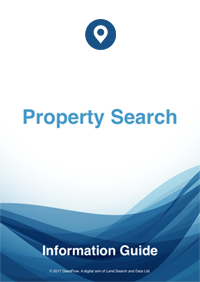Land Registry Title Deeds
Contents
Overview
Land Registry Title Deeds are the documents designated by The Land Registration Act 2002 to prove beyond doubt the ownership of a property. These documents consist of the Title Register and Title Plan, each referring to the other and designed to be read together. Because of the information they contain they are absolutely essential to a vendor’s solicitor to provide the information he needs to prepare the contract for sale and Transfer Deed and for the purchaser to confirm that his client will obtain the property described by the selling agents, and discover all the information his clients will need to know to give legal effect to and to have full enjoyment of, the property.
Land Registry Title Deeds
The Title Deeds, i.e. the Title Register and Title Plan, are created by the Land Registry from the documents sent to them by the purchaser’s solicitor. This will include the Transfer Deed. The Land Registry retain the Title Deeds digitally and make them available to the general public to purchase online for a modest fee whenever they wish.
The Land Registry are a government department who are appointed to retain a property's records once it is registered. Each time ownership changes a new Transfer Deed is sent to the Land Registry which then updates their records. These records are subsisting records, which means that details of previous ownerships and mortgages are removed from the Register completely and replaced with the new details. They do, however, make copies of these prior records available separately, if required, but only from April 1993 onwards. They are available by purchasing a Prior Copies search.
Information Found in the Title Deeds
The salient information held by a Title Register includes, but is not limited to:
- The current ownership details.
- Property description, including the postal address if there is one, rights of way, rights of access, the general boundary positions, whether the property is freehold or leasehold and the class of title, e.g. whether it is an absolute title, a qualified title or a possessory title.
- Mortgages and charges.
- If the property is leasehold there will be short details of the Lease it is held under.
- Restrictive and Positive Covenants.
How Title Deeds are Used
- To discover the ownership details, i.e. the name and address of the current owner
- To prove ownership of a property
- To help resolve boundary disputes
- To help resolve disputes relating to rights of way and/or other rights
- To check the restrictive covenants or other encumbrances that may restrict the use of the property
- To reduce the risk of other persons fraudulently dealing with your property, e.g. obtaining a mortgage over it or assuming ownership of it.
Conclusion
Land Registry Title Deeds are authentic ownership documents, accepted by all official bodies, by which you can prove your ownership beyond doubt. They are needed whenever a property is bought or sold as they contain all of the important ownership information. They are also useful for resolving disputes relating to boundaries and rights of way and to follow the chain of ownership from the date of registration. Because these documents are so important it is prudent to notify the Land Registry whenever you change your address or name. When the property is sold or mortgaged your solicitor will arrange for these details to be updated by the Land Registry.
Title Register
The Land Registry Title Register holds data relating to the property ownership, purchase price, mortgage, tenure, covenants, rights of way, leases and class of title.
£19.95Title Plan
The Title Plan shows an outline of the property and its immediate neighbourhood, and uses colours to identify rights of way, general boundaries and land affected by covenants.
£19.95Associated Documents
Deeds creating Restrictions, Covenants, Easements, etc. are often kept digitally by the Land Registry and made available for sale due to their invaluable detail and content to assist in further understanding the Restrictions, etc.
£29.95


